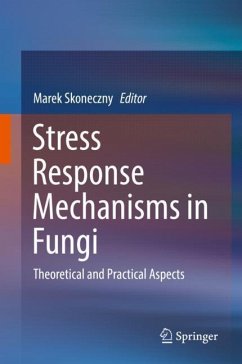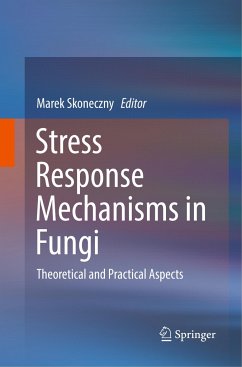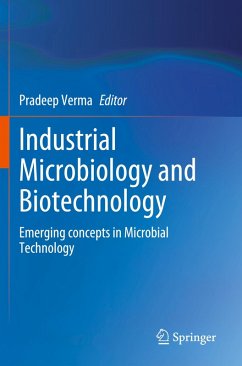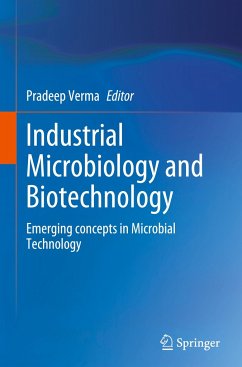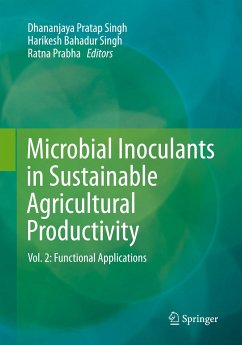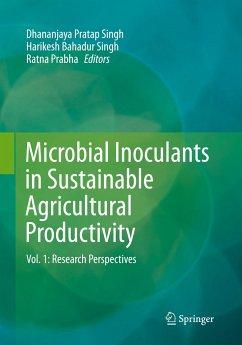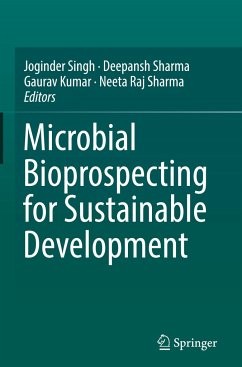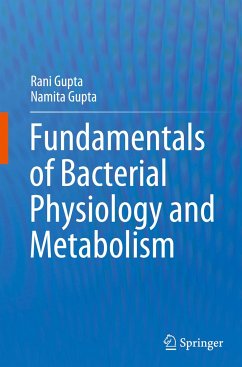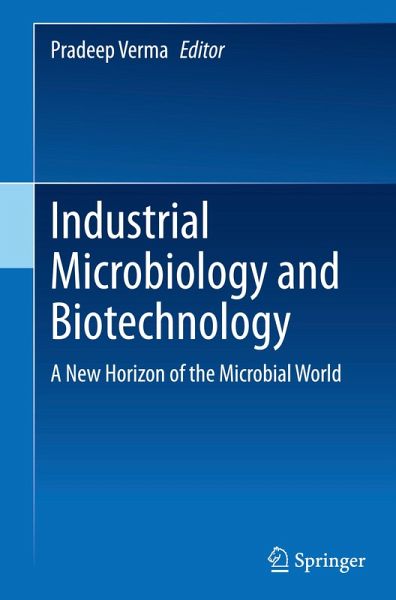
Industrial Microbiology and Biotechnology
A New Horizon of the Microbial World
Herausgegeben: Verma, Pradeep

PAYBACK Punkte
84 °P sammeln!
This book is a comprehensive guide for industrial bioprocess development, covering major aspects of microbial processes and their role in biotechnology. It provides a selection of hyperproducers, microbial products, and metabolic engineering strategies for industrial production. It covers high cell density cultivation techniques product formation kinetics measurement and limiting parameters in large-scale process development. The first and second section of the book focuses on biotechniques, including spectroscopic concepts of light, wave, and electromagnetic theory, as well as absorption, flu...
This book is a comprehensive guide for industrial bioprocess development, covering major aspects of microbial processes and their role in biotechnology. It provides a selection of hyperproducers, microbial products, and metabolic engineering strategies for industrial production. It covers high cell density cultivation techniques product formation kinetics measurement and limiting parameters in large-scale process development. The first and second section of the book focuses on biotechniques, including spectroscopic concepts of light, wave, and electromagnetic theory, as well as absorption, fluorescence, phosphorescence, infrared, and Raman spectroscopy. It also covers the basic principles, concepts, biological applications, and other advanced techniques. The third section emphasizes microbial inventions and improvements in bioprocess development. It covers microbial products and recent developments in fermentation technology and also includes information on metabolic engineering. The fourth section related to microbial inventions and bioprocesses which include platforms for recombinant gene expression, as well as the development of recombinant heterologous expression systems such as E. coli, yeast, mammalian and insect cells, and plant cells used as biofactories. The fifth section of the book focuses on microbial product waste management in extreme environments, biomass waste management, bio-pulping, bio-bleaching, textiles, biofuels, and animal feed production. The book aims to provide a multidisciplinary opportunity on all aspects of microbial biotechnology. It covers recent international developments that have renewed interest in industrial microbiology and biotechnology. The book is suitable for teachers, researchers, graduate and post-graduate students, environmentalists, microbiologists, and biotechnologists.





